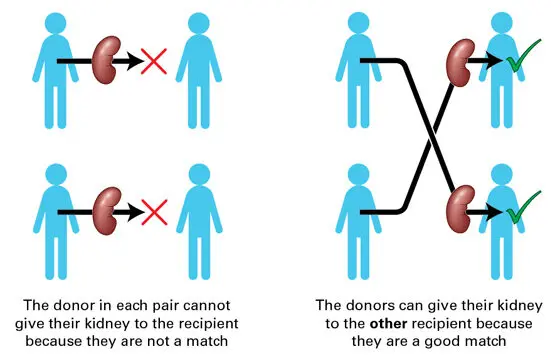SWAP transplant

A SWAP transplant, also known as a paired exchange or kidney swap, is a unique form of kidney transplantation where two incompatible donor-recipient pairs exchange kidneys with each other to enable compatible matches. Dr. Anil Patel’s kidney clinic may facilitate SWAP transplants as part of their transplantation program. Here’s how it typically works:
Initial Evaluation: Each donor-recipient pair undergoes a thorough evaluation to assess their medical suitability for transplantation. This evaluation includes blood tests, tissue typing, crossmatching, and other tests to determine compatibility and ensure the health of both donors and recipients.
Identification of Incompatibility: If the donor and recipient within a pair are found to be incompatible due to blood type mismatch, tissue incompatibility, or other factors, they may be eligible to participate in a paired exchange program.
Search for Compatible Matches: Dr. Patel’s transplant team works with a national or regional database to identify compatible matches among other incompatible donor-recipient pairs. The goal is to find a match where the donor from one pair is compatible with the recipient from another pair, and vice versa.
Pairing and Arranging Transplants: Once compatible matches are identified, arrangements are made to perform simultaneous transplant surgeries. Each donor undergoes surgery to donate their kidney to the recipient in the matched pair, while their intended recipient receives a kidney from the other donor in the paired exchange.
Transplant Surgery: Dr. Patel and his surgical team perform the transplant surgeries, ensuring that each recipient receives a compatible kidney. The surgical team monitors the procedures closely to ensure proper placement and function of the transplanted kidneys.
Post-Transplant Care: Following the transplant surgeries, Dr. Patel and his team provide comprehensive post-transplant care to monitor the recipients’ recoveries and kidney function. This includes administering immunosuppressive medications to prevent rejection and managing any surgical complications.
Long-Term Follow-Up: Dr. Patel conducts regular follow-up appointments with the transplant recipients to assess kidney function, monitor for complications, and adjust medication regimens as needed. Long-term follow-up care is essential to ensure the success and longevity of the transplanted kidneys.
Patient Education and Support: Dr. Patel educates the transplant recipients and their caregivers about the importance of medication adherence, monitoring for signs of rejection or infection, maintaining a healthy lifestyle, and seeking prompt medical attention if any concerns arise. He also provides emotional support and guidance throughout the transplant journey.
Overall, SWAP transplants at Dr. Anil Patel’s kidney clinic offer an innovative solution for incompatible donor-recipient pairs, enabling more patients to receive life-saving kidney transplants through paired exchanges.
